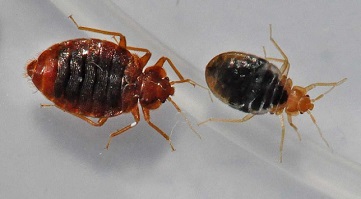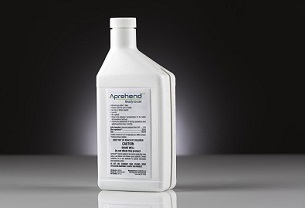 NATIONAL REPORT—A year ago, a California family was awarded $1.6 million as a result of a lawsuit filed against their former landlords for not properly addressing a bed bug infestation. The lawyer representing the family said the award was the largest he had seen given to a single family. While the $1.6 million settlement was unusually high, bed bug settlements in the six figures are not uncommon. Also, not unusual: attorneys who specialize in bed bug cases.
NATIONAL REPORT—A year ago, a California family was awarded $1.6 million as a result of a lawsuit filed against their former landlords for not properly addressing a bed bug infestation. The lawyer representing the family said the award was the largest he had seen given to a single family. While the $1.6 million settlement was unusually high, bed bug settlements in the six figures are not uncommon. Also, not unusual: attorneys who specialize in bed bug cases.
There are many ways to address bed bug infestations—the Green Lodging News website has almost 100 articles that mention the pesky critters—but few systems offer long-term kill solutions for hoteliers. Two companies—Applied Science Labs and ConidioTec—say their products continue to kill bed bugs for months or even up to a year after application.
Applied Science Labs offers VA88, an EPA exempt, bioengineered liquid that emulsifies the waxy outer layer of the bed bug upon contact. Wherever the droplets land on the bed bug’s outer layer, “Swiss cheese” like holes are formed and through these holes its body fluids evaporate. Bed bugs die of dehydration in about 25 seconds. The effective ingredient in VA88 is polypeptide molecules—from soybean oil.
“With VA88, the initial spray kills them,” says Rodger Williams, Manager, Applied Science Labs. “Within VA88 there is a time release mechanism—particles that adhere to the surface where it is applied. It is an immediate kill, but the solid particles persist. Those tiny particles become effective for one year.”
Williams says it is important that an application have longevity because of the nature of bed bugs. Sixty percent of any infestation is in the form of unhatched eggs. Nymphs emerge 10 to 14 days after the eggs are laid. This means that the day after any treatment, the eggs that were laid 10 to 14 days before begin to hatch. This continues over the next 10 to 14 days. The nymphs must be stopped before they begin their own reproductive cycle. At the same time, well-hidden adults may remain for up to 11 months without feeding. They can re-emerge at any time.
New Product Developed at Penn State
Last November, researchers at Penn State University, unveiled Aprehend, an EPA registered mycoinsecticide now sold by a company called ConidioTec. ConidioTec is part of Invent Penn State, an initiative blending entrepreneurship-focused academic programs, business startup training and incubation, funding for commercialization, and industry and community collaborations to facilitate the challenging process of turning research discoveries into valuable products and services. According to one of ConidioTec’s founders and Chief Technology Officer, Nina Jenkins, Ph.D., Senior Research Associate in Entomology, College of Agricultural Sciences, Penn State University, Aprehend technology is based on the use of a fungal biopesticide, which is highly effective against bed bugs. It works as a long-lasting barrier spray.

“As bed bugs crawl across the sprayed surface, they pick up the fungal spores, and can transfer them to other bed bugs in their harborage, targeting those that don’t cross the spore barrier themselves,” Jenkins says. “It is not relying on a toxic mode of action. It is like walking in sand in wet feet. Aprehend controls infestations with a single application. The spores love to stick to the waxy layer on the bedbug. They are triggered to germinate and penetrate into the insect’s body. They use up the nutrients in the blood. It takes 20 to 24 hours. The bed bug can die as quickly as three days to seven to 10 days. In four to five days most die.”
Jenkins says bed bugs go through five stages of growth and must feed after each stage, so applying a three-month preventive Aprehend barrier provides the optimal eradication results. Bed bugs that cross the barrier acquire fungal spores and go on to spread these among insects that remain in their harborages, resulting in greater than 95 percent population reduction in two weeks.
No Known Bed Bug Resistance
One of the challenges with bed bugs is their ability to adapt to pesticides and become resistant to them. Jenkins says Aprehend has no known resistance or cross-resistance in bed bugs.
“Biopesticides are usually inherently less toxic than conventional pesticides,” Jenkins says. “Biopesticides generally affect only the target pest and closely related organisms, in contrast to broad spectrum, conventional pesticides that may affect organisms as different as birds, insects, and mammals. Biopesticides can be effective in very small quantities and often decompose quickly, thereby resulting in lower exposures and largely avoiding the toxicity problems caused by conventional pesticides.”
Utilizing preventive products like VA88 and Aprehend can help reduce exposure to legal nightmares. In fact, Applied Science Labs offers a certification program that gives hoteliers documentation to use as proof of VA88 application.
Williams says that, “If you don’t own your property, you must have a license to apply VA88.” Adds Jenkins regarding Aprehend, “Anybody with an applications license can apply this product. If you don’t have one, it does need to be applied by a pest management professional.”
Glenn Hasek can be reached at editor@greenlodgingnews.com.





